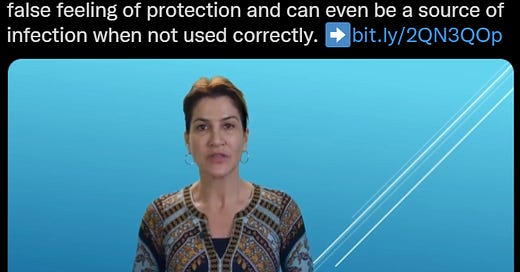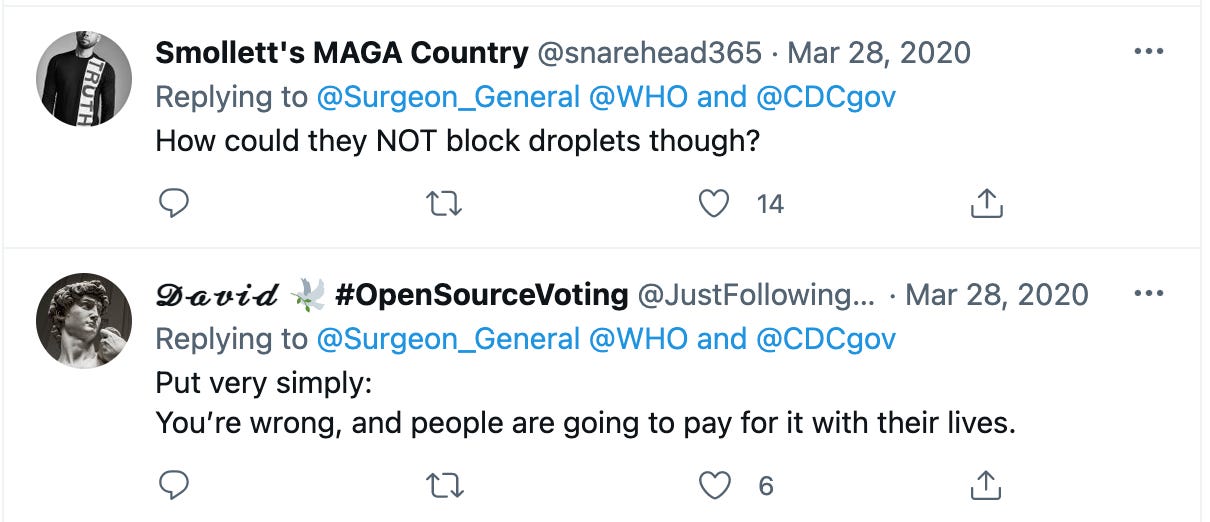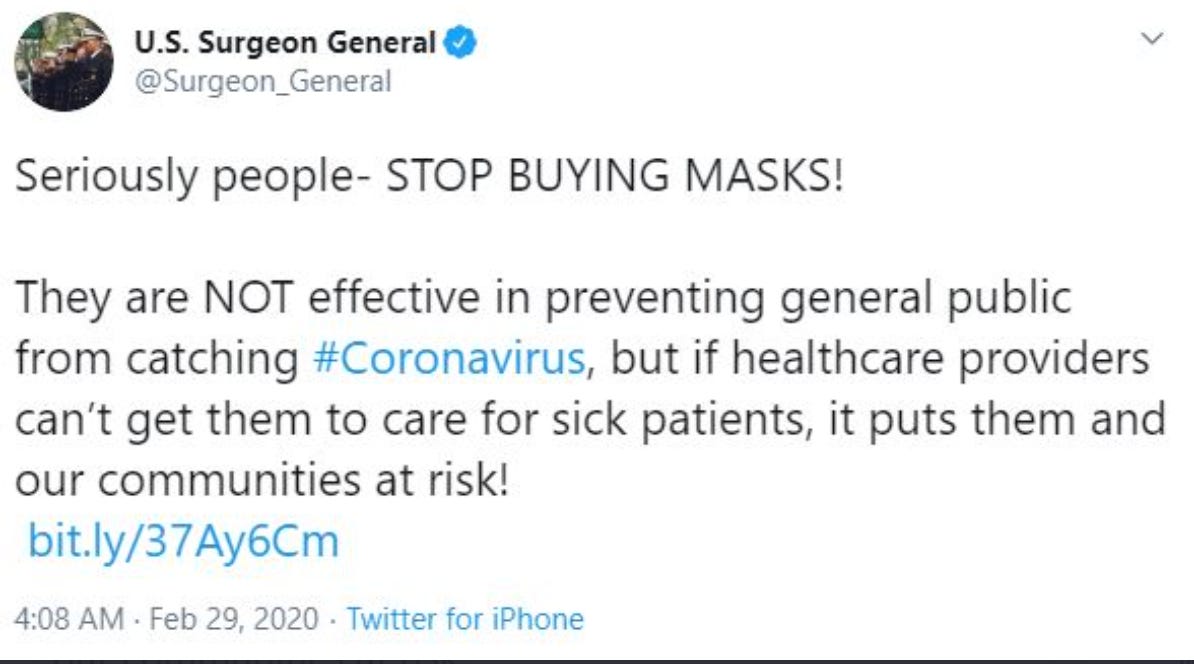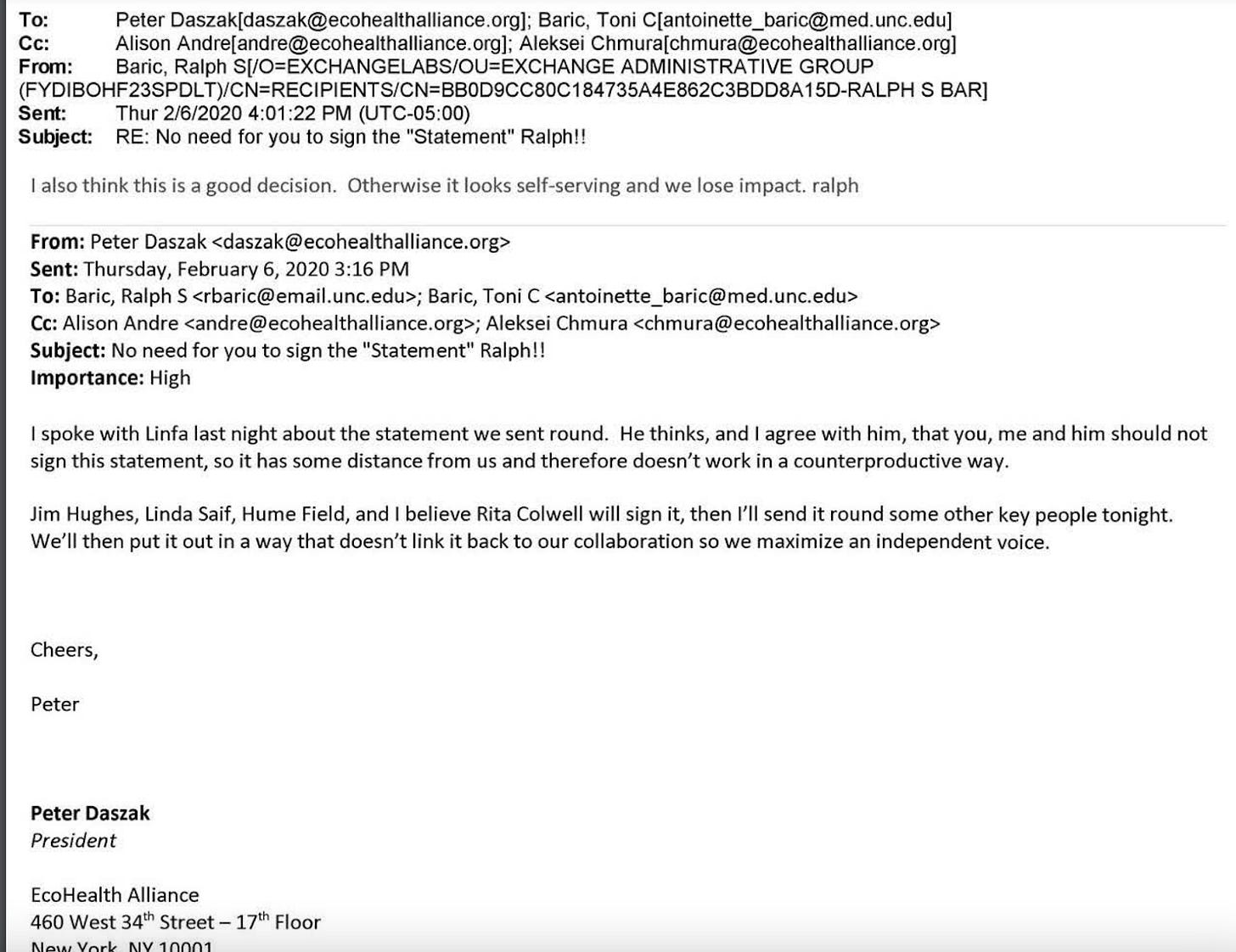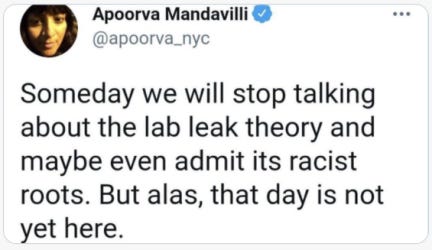Why Couldn't We Have Had An Honest Conversation About COVID?
It's time to end the "People Are Too Stupid" model of public health.
Masks
The first thing we know when a new pathogen is discovered is that we don’t know a lot. This was certainly the case for COVID-19. Where did it come from? How is it spread? Should people spray their packages? All of this was unknown at the beginning. Despite the uncertainty, or perhaps because of it, public health institutions play a critical role in providing initial guidance to the public on how to stay safe. Given how little we knew, it would have been impossible for them to get everything right. But, looking back, and knowing what we knew then, we still could have had an honest conversation about it.
Public health institutions like the CDC have prior knowledge of pandemics that they can use to provide initial guidance. For example, it has been known for years that coronaviruses mostly spread through respiratory droplets. So it’s reasonable to assume that COVID-19 very likely could as well. And, given the possibility, it's probably a good idea to wear a mask. Exactly how effective different types will be isn’t certain. For an airborne virus, an N95 mask is sure to be protective, but is a cloth mask? Given that we didn't have enough N95 masks for everyone, wouldn’t it be reasonable for the CDC to recommend cloth masks to be cautious?
Unfortunately, they didn’t. The CDC's initial advice was:
CDC does not recommend that people who are well wear a facemask to protect themselves from respiratory illnesses, including COVID-19.
The CDC was not alone in this. The advice was the same from the surgeon general and the WHO.
The Surgeon General stated in a Tweet:
@WHO @CDCgov & my office have consistently recommended against the general public wearing masks as there is scant or conflicting evidence they benefit individual wearers in a meaningful way, but real concerns about pulling from the healthcare worker supply
What I found fascinating was when I scrolled through the Twitter responses. Even at the time - in March of 2020 - people on Twitter knew this was horrible advice. As it turned out, you would have been better off listening to random people on Twitter than the US Surgeon General.
Here’s another one from the surgeon general:
Was there ever a conversation, deep in the hall of the CDC, about telling the truth? About being honest with the American people they are supposed to serve? Did they ever consider a statement like:
Based on our experience with SARS-CoV-1, we believe that mask wearing is likely to reduce the risk of the COVID-19 virus spreading. Medical workers have the greatest need for the best masks, so we're calling on businesses and the public to reserve N95 masks for medical workers while we are putting every effort into increasing domestic production. In the meantime, we recommend cloth masks as a precaution. Although we haven't been able to study their efficacy, we are redoubling our efforts and will have more guidance as soon as possible. Many viruses require people to show symptoms before they are contagious, but many don't. The safest option is to assume they do until we find out otherwise. We are actively researching this and will provide updated information as soon as possible.
Was that so hard? It didn't require any information about COVID-19 that wasn't around at the time - just some honesty.
Even after it became commonly known how wrong and dangerous this advice was, the fact that they had been putting out wildly inaccurate and dangerous advice was accepted. The justification, as far as I can tell, is something like "Well, if we didn't lie to you about a fatal disease you would have taken all the N95 masks away from healthcare workers." This was pretty much accepted as a justification for lying.
I understand that they were trying to preserve masks for medical professionals and I think that’s a legitimate goal. But that doesn't permit them to lie. Taiwan passed a law rationing masks so the medical community could have enough. That served the same purpose but didn't require lying to the public during a deadly pandemic.
Why wasn’t there more response to this? Am I overreacting to this? The CDC is offering deadly, unscientific, advice during a pandemic and the reaction from the media was pretty muted. Where are the headlines asking how many extra have died because of this advice? The CDC is currently on a campaign asking people to quarantine, wear masks, and get vaccinated. Where are the stories asking if there are any negative repercussions from kicking off the campaign with a big lie? Why has the media given this a pass?
Part of the answer is probably because the media was on board. Forbes ran the article "No, You DO NOT Need Face Masks For Coronavirus—They Might Increase Your Infection Risk". This was bullshit at the time. Here's a particularly cringe-worthy section from the article:
And if you already have masks, should you wear them when you’re out?
No.
Even if there are COVID cases in your community?
Even if there are cases next door, the answer is no, you do NOT need to get or wear any face masks—surgical masks, “N95 masks,” respirator masks, or anything else—to protect yourself against the coronavirus. Not only do you not need them, you shouldn’t wear them, according to infection prevention specialist Eli Perencevich, MD, a professor of medicine and epidemiology at the University of Iowa’s College of Medicine.
“The average healthy person does not need to have a mask, and they shouldn’t be wearing masks,” Dr. Perencevich said. “There’s no evidence that wearing masks on healthy people will protect them. They wear them incorrectly, and they can increase the risk of infection because they’re touching their face more often.”
Ouch! That's hard to read. But I think it also points to the reason behind it all. Let me recap Dr. Perencevich's statement: "People shouldn't wear masks because they're too stupid to use a mask correctly and will cause more harm than good". That's the genesis of it all. That's why it's OK for the CDC/WHO/ Surgeon General to lie. Because they think people are too stupid to understand how to put on a mask.
The NYTimes jumped right in with the "People Are Too Stupid" model of public health:
Most people are unlikely to know how to wear these masks and could accidentally contaminate themselves if they touch the outside of the mask when they remove it and then touch their face.
The next line is:
“Not having a mask does not necessarily put you at any increased risk of contracting this disease,” Dr. [Michael J. Ryan, executive director of the health emergency program at the World Health Organization] said.
And we're the ones too stupid to know how to wear a mask.
Another line from the article:
"A person is more likely to get infected by touching contaminated surfaces than from a droplet traveling through the air."
Again, I'll restate what I've already said - there was uncertainty in the early days of COVID, so it’s understandable to not know everything. But where's the uncertainty in this statement? There was never evidence to support it and if it were true it would have made SARS-CoV-2 different from all the other coronaviruses.
Scientific institutions like the Journal of the American Medical Association (JAMA) were on board with this as well:
There is no evidence that face masks are effective in preventing healthy people from becoming ill, JAMA said.
This wasn't consistent with the evidence AT THE TIME. SARS-CoV-1 spreads through respiratory droplets. That's why the places that had the most experience with it - China, Hong Kong, and Taiwan - were the first to put on masks. At the first reports of SARS-CoV-2, my Chinese and Taiwanese friends were the first to put on masks, far ahead of anyone else or the CDC's advice.
The point here isn’t that experts were wrong, it's about why they were wrong. They weren't wrong because of unclear science - they could have just said there was uncertainty. They gave deadly, scientifically inaccurate guidance because the elites don't think the common people are smart enough to have an honest conversation. It's time to end the "People Are Too Stupid" model of public health.
Lab Leak
The conversation around the origins of COVID followed a similar vein. I don't know how COVID originated, but I believe that there are multiple competing hypotheses, none of which have conclusive supporting evidence. When thinking about the origins of SARS-CoV-2, researchers started with the hypothesis that it’s similar to SARS-CoV-1. That is, it had a zoonotic origin. Rightfully so, this became the leading hypothesis.
But it wasn’t the only hypothesis. Viruses have leaked from labs as well. Without knowing more, we can’t be sure of the true origin. Getting to the truth would be a complicated endeavor of reviewing all of the evidence and testing our assumptions. An honest conversation would have helped us get there. But instead of an honest conversation, discussions about a lab leak were shut down.
In February of 2020, not long into the pandemic, Senator Tom Cotton suggested that the virus might have come from the nearby Wuhan Institute of Virology which was researching SARS-like coronaviruses from bats, though he admitted that we don’t know for sure. From that moment on, the battle lines were drawn and the lab leak hypothesis became“a Republican thing.” Meaningful discussion was over and the competing sides went into attack mode.
At that time, we knew far less about the origin of the virus than we do today (and I think we still don’t know that much). But this didn’t stop the newspapers of record from telling us what theories could be repeated in polite conversation. The Washington Post ran the headline, “Tom Cotton keeps repeating a coronavirus conspiracy theory that was already debunked.1” The NYTimes felt confident enough to call the lab leak a conspiracy theory.
Then came this statement in the Lancet which referred to theories that COVID did not have a natural origin as "conspiracy theories." Any last inhibition the media might have had was gone; they were given carte blanche to let loose on any dissenters.
Slate announced that it was not only a conspiracy theory, but “rumors of a lab escape or a bioweapon stem from historical amnesia, a caricatured villain, and good old-fashioned racism.” Reuters jumped right into calling it a “conspiracy theory.” The fact-checkers weren’t far behind. PolitiFact said, "The claim is inaccurate and ridiculous. We rate it Pants on Fire!" It wasn’t even a reasonable question to ask. It's not that it was considered unlikely, it's that it was considered out-of-bounds. Discussion of it was banned from Facebook.
At some point, President Trump started saying it and any last hope of a civil conversation was gone. The Guardian was so focused on it being a Trump theory that they forgot to be curious if it were possible. They didn’t think, “This is a pretty big deal, we should look into why it happened.” No, they just decided to run up the score on Trump some more.
And that was that. The media had denounced the “conspiracy theory” and discussion was over. For over a year the only acceptable belief was that COVID had a zoonotic origin. I had bought into the narrative too. I didn’t think there was any evidence for a lab leak, and that anyone propagating that story was just deflecting blame and being sinophobic. I held these beliefs until May of 2021 when I stumbled upon a piece by Nicholas Wade on Medium.
I entered the article expecting a crazy, racist, nutjob. I was wrong. The lab leak is a legitimate hypothesis. I don't intend to go over the evidence here - if you're interested, check out that link.
How had I not known about this for over a year? Where were the curious reporters asking tough questions? Fortunately, one organization, the U.S. Right to Know, was curious. In 2020, they found out that there was more to the Lancet piece than was disclosed. According to information gained from the FOIA request, the president of EcoHealth Alliance, Peter Daszak, was instrumental in drafting that statement. And as is apparent from his email correspondence, he wanted his role to remain unknown.
A day after that email was sent, the Lancet published the statement. In the end, Daszak did sign the statement (although Baric did not). This is the statement that declared the lab leak hypothesis a “conspiracy theory.” The statement ended by stating: “We declare no competing interests.”
Why would Daszak want to distance himself from the statement? If there was a lab leak in Wuhan, the primary suspect would be the Wuhan Institute of Virology. As comedian Jon Stewart noted, there is an interesting coincidence between the Wuhan Institute of Virology studying coronavirus and a coronavirus outbreak in Wuhan. Daszak had been funding and working with the Wuhan Institute of Virology on coronaviruses going back over a decade, had published joint work with them on isolating coronavirus receptors, and had ongoing work on cross-species transmission of bat coronaviruses. This is certainly valuable research, but if we wanted an independent investigation into that lab, he would be on a shortlist of people not to conduct it.
However, the conflicts of interest were not declared and Daszag became the sole American representative of the WHO investigation into the Wuhan Institute of Virology. The delegation concluded that a lab leak was “extremely unlikely.”
I didn’t know about any of this until May of 2021. That’s when Nicholas Wade’s piece was published and the lab leak theory started to regain traction. (I don’t know how much influence this specific piece had, but this is where I saw it first, and shortly after that I started seeing it more commonly.)
Discussions about a lab leak started to pick up again. There was immediate pushback. If you think a lab leak is possible you're a racist, says the New York Times reporter for science and global health covering the pandemic. (Slight tangent, but if we had to label one of the theories as “racist”, wouldn’t it be the bat-eating one?)
But as May unfolded, the efforts to stop discussion of a lab leak unraveled. Mainstream media started discussing it as a legitimate possibility and Facebook lifted the ban on discussing the lab-leak theory. President Biden asked the intelligence community to look into the hypothesis. It went from banned to mainstream within a month. But why wasn't it mainstream all along?
A month later, the Lancet issued an addendum to their statement from March of 2020 including a lengthy conflict of interest statement about Daszak’s role.
The point of this all isn’t that anyone in particular was wrong. Indeed, those promoting the zoonotic origin might very well be correct. But it’s the dismissiveness with which other hypotheses were treated. These organizations play a tremendously important role in society. When they uniformly shut down the conversation, it becomes impossible for that conversation to advance.
The Washington Post has since updated the headline to read “Tom Cotton keeps repeating a coronavirus fringe theory that scientists have disputed” and issued the following correction:
Earlier versions of this story and its headline inaccurately characterized comments by Sen. Tom Cotton (R-Ark.) regarding the origins of the coronavirus. The term “debunked” and The Post’s use of “conspiracy theory” have been removed because, then as now, there was no determination about the origins of the virus.

